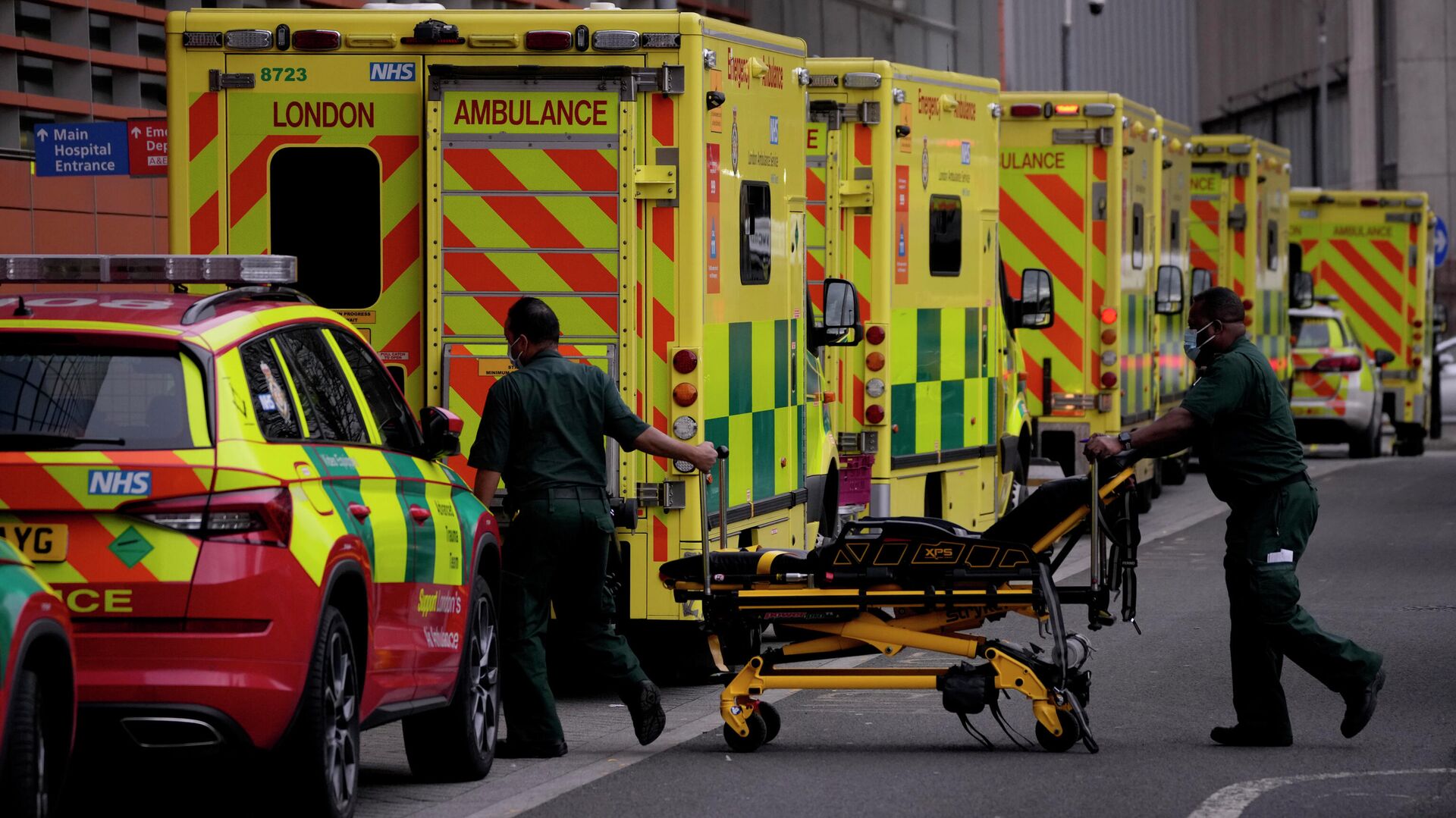https://sputnikglobe.com/20220421/uk-covid-19-quarantine-facilities-cost-taxpayers-over-520mln-national-audit-office-says-1094940032.html
UK COVID-19 Quarantine Facilities Cost Taxpayers Over $520Mln, National Audit Office Says
UK COVID-19 Quarantine Facilities Cost Taxpayers Over $520Mln, National Audit Office Says
Sputnik International
UK COVID-19 Quarantine Facilities Cost Taxpayers Over $520Mln, National Audit Office Says
2022-04-21T10:57+0000
2022-04-21T10:57+0000
2023-05-28T15:19+0000
coronavirus
covid-19
national audit office (nao)
united kingdom (uk)
https://cdn1.img.sputnikglobe.com/img/07e6/01/0b/1092182772_0:161:3071:1888_1920x0_80_0_0_eb26c3eade9cc6bf23300e9c3d16db0e.jpg
Also, some 74 million pounds, supposed to cover the expenses for COVID-19 screening and quarantine facilities, were not paid, as well as another 18 million pounds returned by fraud in credit card chargebacks, according to the report.The NAO also criticised the government's attempt to establish a COVID-19 testing market, saying that "government had limited oversight of the market it created for COVID-19 tests for travel, and service to the public has sometimes been poor."The NAO added that the COVID-19 border regulations were changed at least 10 times between February 2021 and January 2022, creating "uncertainty" caused by "poor communication of some measures".
united kingdom (uk)
Sputnik International
feedback@sputniknews.com
+74956456601
MIA „Rossiya Segodnya“
2022
Sputnik International
feedback@sputniknews.com
+74956456601
MIA „Rossiya Segodnya“
News
en_EN
Sputnik International
feedback@sputniknews.com
+74956456601
MIA „Rossiya Segodnya“
Sputnik International
feedback@sputniknews.com
+74956456601
MIA „Rossiya Segodnya“
uk covid-19 quarantine facilities cost taxpayers over $520mln, national audit office says
uk covid-19 quarantine facilities cost taxpayers over $520mln, national audit office says
UK COVID-19 Quarantine Facilities Cost Taxpayers Over $520Mln, National Audit Office Says
10:57 GMT 21.04.2022 (Updated: 15:19 GMT 28.05.2023) MOSCOW (Sputnik) - UK quarantine facilities for travelers returning from so-called red list countries cost the country's taxpayers over 400 million pounds ($522.8 million), including unpaid bills and fraud, which account for about 100 million pounds, the National Audit Office (NAO) said in a new report issued on Thursday.
"DHSC [Department of Health and Social Care] originally expected that the service would break even, but the taxpayer has subsidised its cost. DHSC estimates the total cost of running the MQS [managed quarantine service] between April 2021 and March 2022 to be £757 million, nearly double the expected income of £428 million from those in quarantine hotels in the period", the report said.
Also, some 74 million pounds, supposed to cover the expenses for COVID-19 screening and quarantine facilities, were not paid, as well as another 18 million pounds
returned by fraud in credit card chargebacks, according to the report.
"DHSC has not protected the taxpayer from fraud. The MQS has been subject to fraud, including significant 'chargebacks', where people who have stayed in the MQS have claimed refunds. By 20 January 2022, DHSC had identified that nearly £18 million of MQS refunds issued by CTM were fraudulent", the report added.
The NAO also criticised the government's attempt to establish a COVID-19 testing market, saying that "government had limited oversight of the market it created for COVID-19 tests for travel, and service to the public has sometimes been poor."
"Government has not clearly articulated how it is assessing the success of its measures, which have also incurred costs and exposed the taxpayer to fraud. As it has not developed a set of performance measures to track the effectiveness of the measures it has deployed and with no evaluation of the additional costs incurred, government cannot demonstrate its implementation measures have achieved value for money", the report went on.
The NAO added that the
COVID-19 border regulations were changed at least 10 times between February 2021 and January 2022, creating "uncertainty" caused by "poor communication of some measures".

